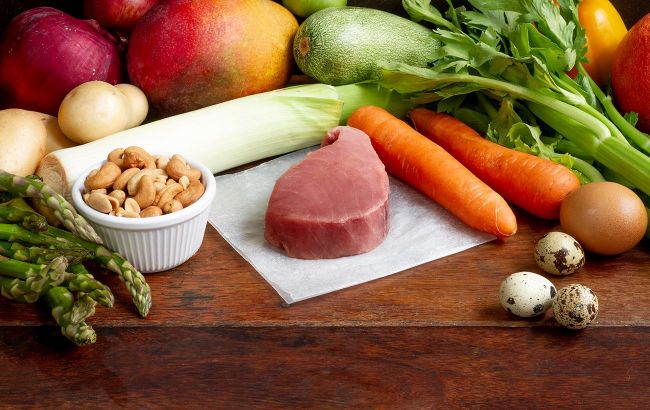Living without meat and staying healthy: Harvard professor's insight
 Illustrative photo (Photo: Freepik.com)
Illustrative photo (Photo: Freepik.com)
Meat plays an important role in preventing depression and anxiety. Refusing this product entirely can be harmful to mental health, according to a psychiatrist specializing in nutrition and metabolism at Harvard University, Dr. Georgia Ede.
Dr. Ede has been studying the connection between what we eat and our mental and physical health for several years. She asserts that the human brain requires meat because, without it, we jeopardize our mental health.
"The brain needs meat. We’re used to hearing that meat is dangerous for our total health, including our brain health, and plants are really the best way to nourish and protect our brains," the expert says.
She emphasizes that despite concerns about sufficient protein intake has long been a worry in vegan diets, meat consumption is about more than just protein.
"It's actually less about protein and more about all of the other nutrients that are inside meat. You can get your protein needs met through a vegan and vegetarian diet if you plan it carefully," Dr. Ede says.
Proteins are composed of chemical compounds called amino acids, which build and repair muscles and bones.
While animal products such as eggs, meat, cheese, and Greek yogurt are rich in protein, it can also be found in vegan foods like lentils and broccoli.
"But many of the other essential nutrients are much more difficult if not in some cases impossible to obtain from plants," the researcher adds.
She notes that meat is "the only food that contains every nutrient we need in its proper form and is also the safest food for our blood sugar and insulin levels."
These nutrients include vitamin B12, omega-3 fatty acids, zinc, choline, iron, and iodine.
Vitamin B12, for example, assists in the formation of oxygen-carrying red blood cells and DNA. However, it's also linked to serotonin regulation, which boosts mood, and low serotonin levels are associated with an increased risk of depression and anxiety.
A systematic review of 18 studies in 2021 compared meat-eaters with non-meat-eaters. The study involved 160,257 participants aged 11 to 96 (53% of whom were female), including 149,559 meat-eaters and 8,584 meat-avoiders.
Of these, 11 studies showed that meatless diets were associated with worsened mental health. One of these studies found that vegetarians had a 35.2% chance of developing major depression compared to 19.1% in meat-eaters.
Additionally, the likelihood of developing an anxiety disorder in vegetarians was 31.5% compared to 18.4% in meat-eaters.
One study published in 2022 surveyed 14,000 Brazilians aged 35 to 74 and found that those following a vegan diet were twice as likely to suffer from depression—even if they consumed the same nutrients as meat-eaters.
A meta-analysis published in 2020, which included 160,000 meat-eaters and 8,500 meat avoiders, also showed that those who excluded meat from their diet were significantly more likely to suffer from depression.
Furthermore, meat, eggs, and milk are particularly vital for children, adolescents, and the elderly, as well as pregnant and breastfeeding women.
A 2019 document also noted that a deficiency in vitamin B12, which is more common in vegans, may increase the risk of stroke.
This is because its absence impedes the removal of proteins from the bloodstream, leading to inflammation, which in turn increases the likelihood of damage to blood vessels. This is a key risk factor for stroke.
Adults require approximately 2.4 mcg of vitamin B12 per day to function normally.
This material is for informational purposes only and should not be used for medical diagnosis or self-treatment. Our goal is to provide readers with accurate information about symptoms, causes, and methods of detecting diseases. RBС-Ukraine is not responsible for any diagnoses that readers may make based on materials from the resource. We do not recommend self-treatment and advise consulting a doctor in case of any health concerns.

